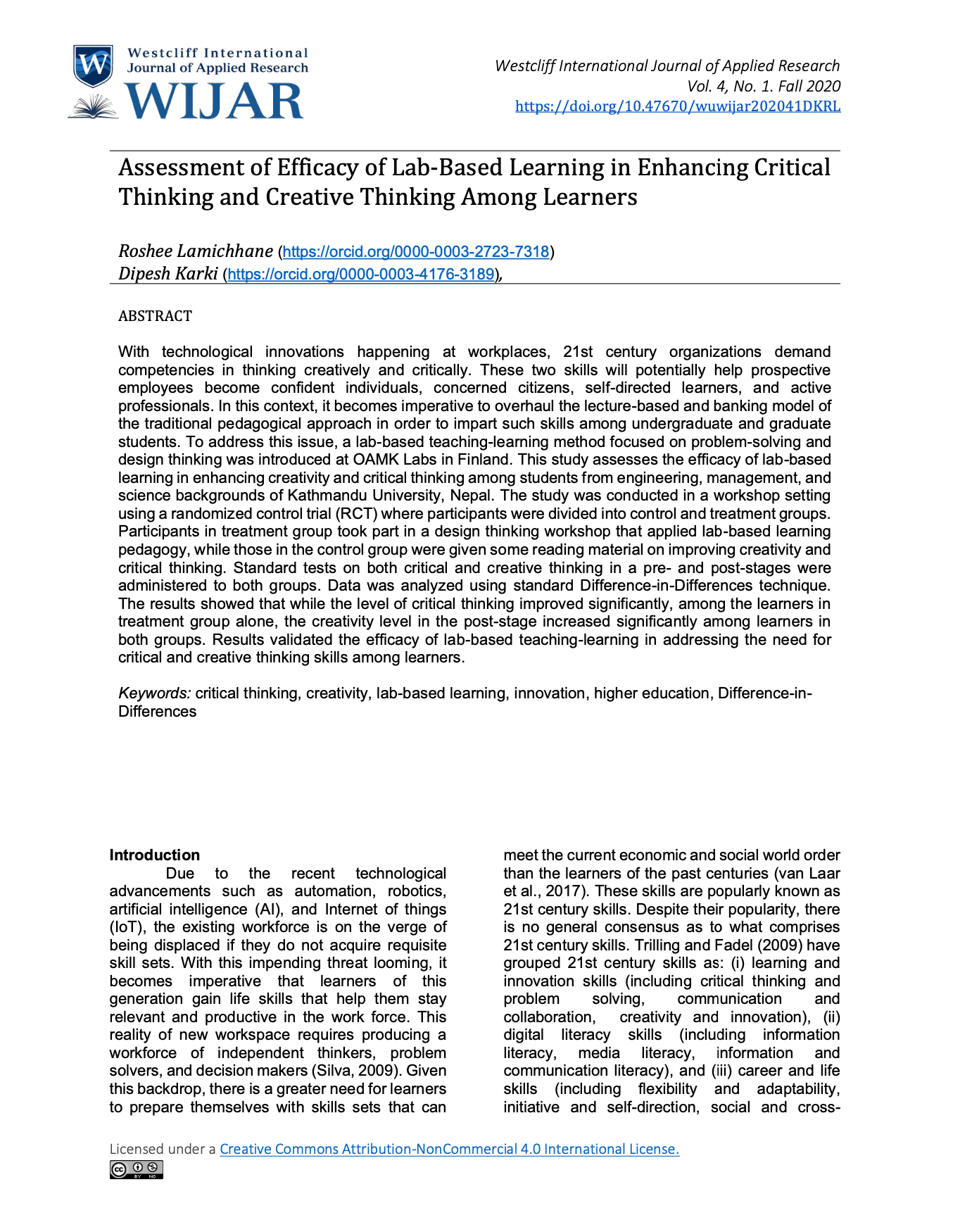Assessment of Efficacy of Lab-Based Learning in Enhancing Critical Thinking and Creative Thinking Among Learners

Author: Roshee Lamichhane, Dipesh Karki
Issue: Fall Issue, 2020
Download ArticleAbstract
With technological innovations happening at workplaces, 21st century organizations demand competencies in thinking creatively and critically. These two skills will potentially help prospective employees become confident individuals, concerned citizens, self-directed learners, and active professionals. In this context, it becomes imperative to overhaul the lecture-based and banking model of the traditional pedagogical approach in order to impart such skills among undergraduate and graduate students. To address this issue, a lab-based teaching-learning method focused on problem-solving and design thinking was introduced at OAMK Labs in Finland. This study assesses the efficacy of lab-based learning in enhancing creativity and critical thinking among students from engineering, management, and science backgrounds of Kathmandu University, Nepal. The study was conducted in a workshop setting using a randomized control trial (RCT) where participants were divided into control and treatment groups. Participants in treatment group took part in a design thinking workshop that applied lab-based learning pedagogy, while those in the control group were given some reading material on improving creativity and critical thinking. Standard tests on both critical and creative thinking in a pre- and post-stages were administered to both groups. Data was analyzed using standard Difference-in-Differences technique. The results showed that while the level of critical thinking improved significantly, among the learners in treatment group alone, the creativity level in the post-stage increased significantly among learners in both groups. Results validated the efficacy of lab-based teaching-learning in addressing the need for critical and creative thinking skills among learners.
